Photography Ingrid Weir
Sign up to our mailing list for the best stories delivered to your inbox.
Ingrid’s approach to garden design is similar to her take on interiors — she likes to create a series of outdoor ‘rooms’ that invite you to pause and enjoy the space.
Words Penny Carroll Photography Ingrid Weir
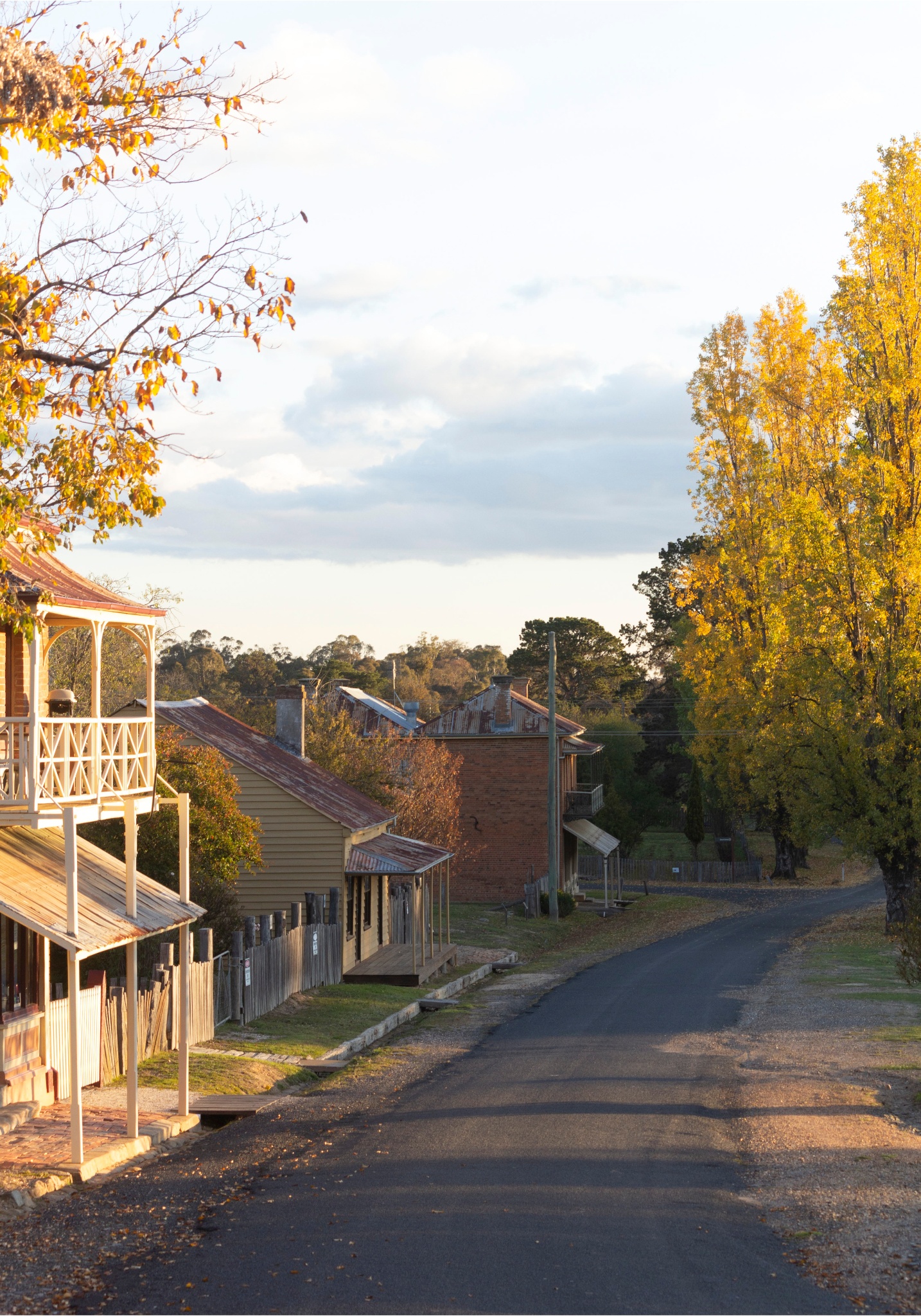
Photography Ingrid Weir
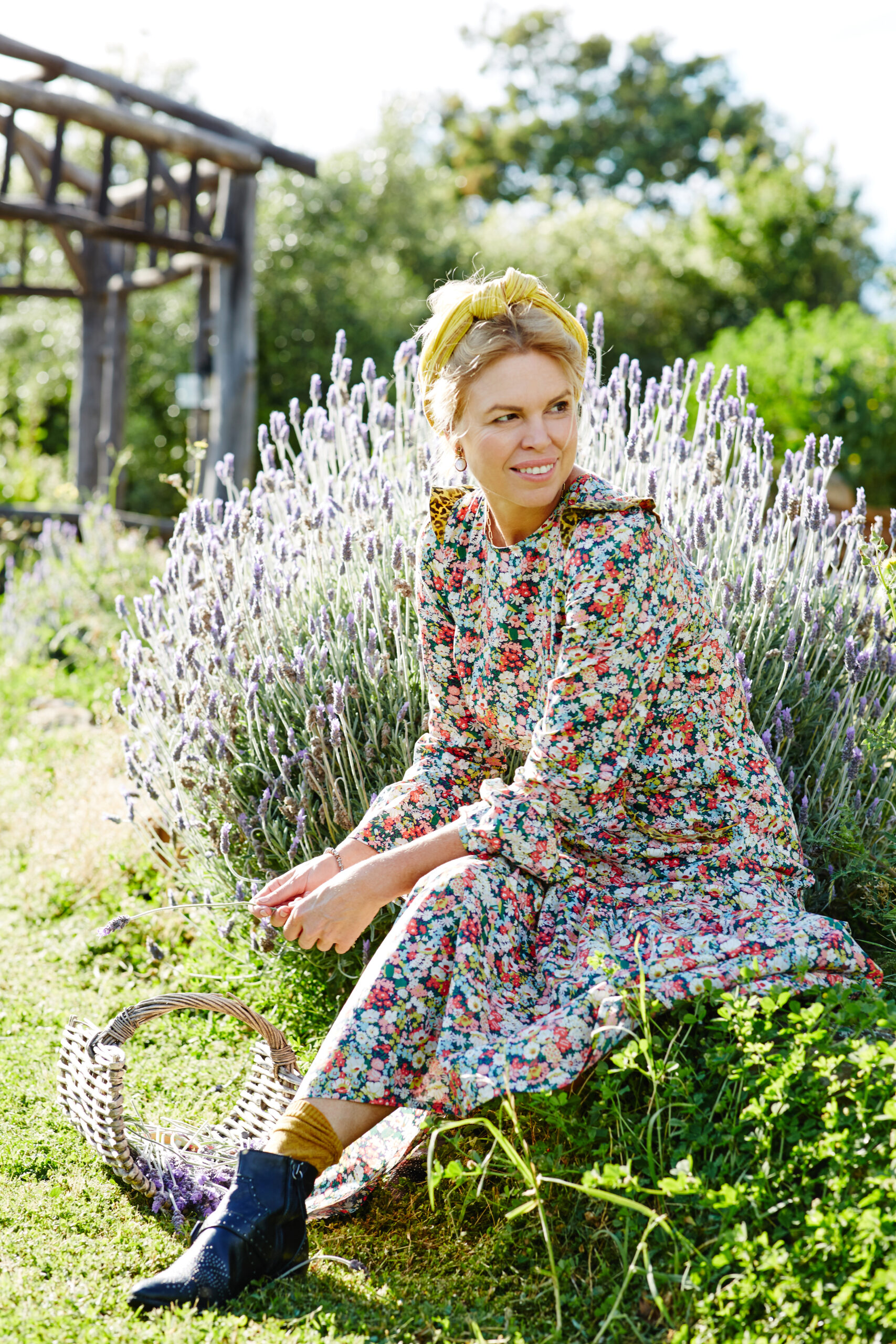
Photography Ingrid Weir
In the late 19th century people from all over the world flocked to Hill End, an hour north-west of Bathurst, NSW, to search the ground for gold. Now, designer and photographer Ingrid Weir is extracting a different kind of treasure from the earth — her thriving garden.
When Ingrid bought the old schoolmaster’s cottage as a country escape in 2011, the surrounding garden was just a field of dreams. “It was covered in weeds and there was one tree,” she recalls. “They were quite pretty weeds though!”
Her vision was to create a gravel garden, inspired by renowned filmmaker Derek Jarman’s charming cottage garden in Dungeness on the Kent coast in England, chronicled in the book Modern Nature. “He lived in a tiny fisherman’s cottage with a nuclear reactor in the background, and he made this amazing garden,” explains Ingrid, who is the daughter of another filmmaker, Picnic At Hanging Rock director Peter Weir.
With her own background in film and theatre set design to draw from, as well as a love of gardening nurtured by her grandmother, Ingrid set about turning the patch of weeds into a hardy garden well suited to the rugged mountain region, with its searing hot summers and bone-cold winters. “I’m not there all the time and I don’t have a gardener there, so it had to be low maintenance,” she says.
Ingrid turned to another goldfields gardener for dry climate-loving plants: David Glenn of Lambley Nursery in Ascot, near Ballarat, which provided the spectacular towering spikes of echium, dainty salvias and yellow kniphofia. The friendly community of Hill End locals, such as artist Luke Sciberras, also shared advice, cuttings and bulbs. “There are some wonderful gardeners in Hill End, so I get tips from them, and see what does well,” says Ingrid. “A friend of mine gave me some beautiful bulbs that she pulled out of her garden, heritage irises that are purple and yellow. I put them up and down the path and they are stunning.” Lilacs, lavender, quinces and apricots also thrive in Hill End’s arid climate.
Ingrid’s approach to garden design is similar to her take on interiors — she likes to create a series of outdoor ‘rooms’ that invite you to pause and enjoy the space. “The more you can break up the space into specific zones, the more you use it and move around the garden — or a room,” she explains. “I think that makes it feel more exciting and spacious. Things like paths take you through the garden, and garden seats are great because they give you another experience of sitting in and immersing yourself in it.”
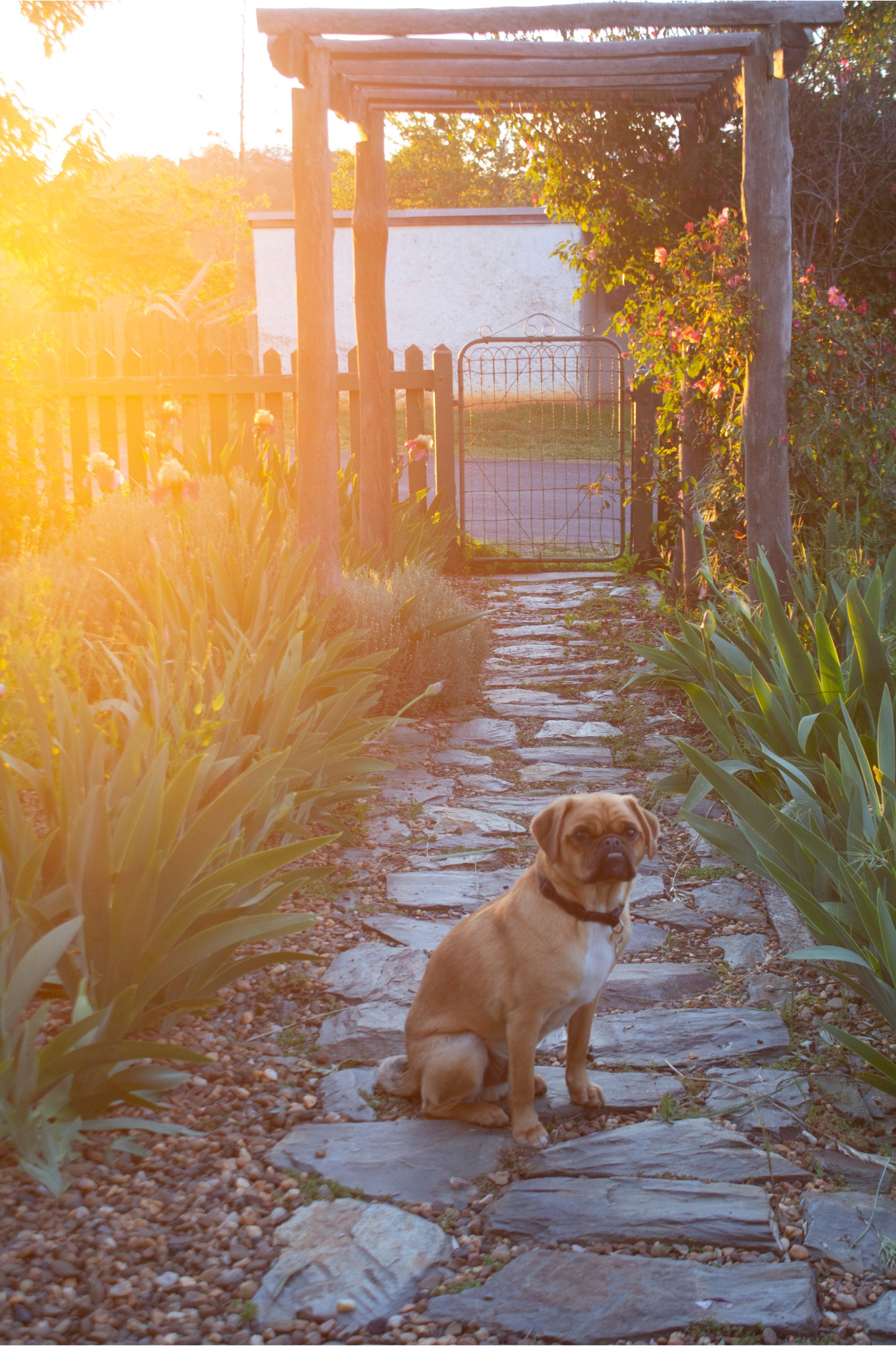
Photography Ingrid Weir
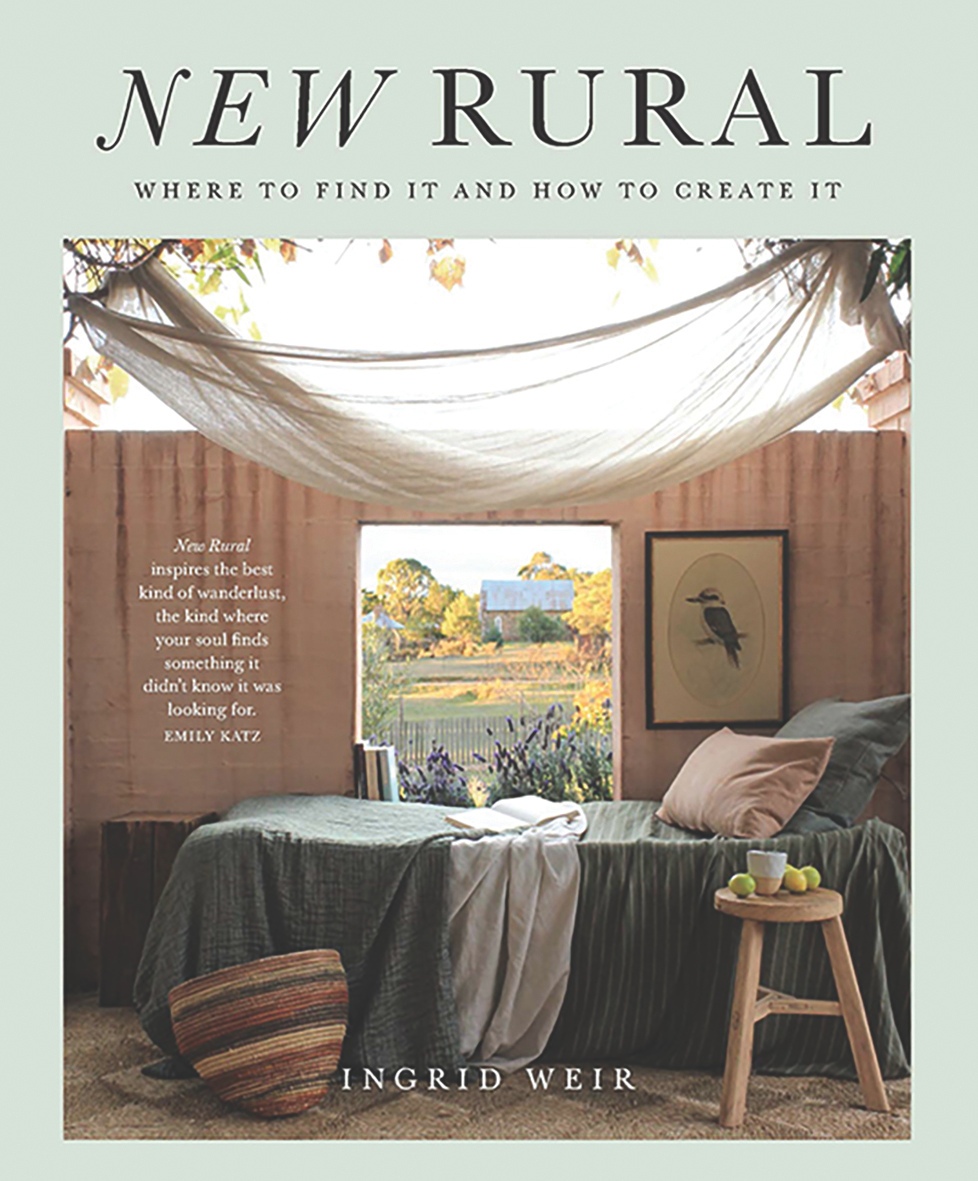
See more of Ingrid Weir’s Hill End garden and home in her new book New Rural (Hardie Grant, $60) which is out now.
Beyond the gravel garden at the front of the house is a courtyard where Ingrid grows lemons and other plants that need a little shelter. A lawn with olive trees creates another low-maintenance zone — and recently provided a crop of fruit that Ingrid was surprised to discover made delicious preserves.
It’s these small moments of gratification that Ingrid loves about gardening. “I like the simple tasks, just watering and
nurturing and then seeing lovely little surprising results,” she muses. “I like getting my fingers in the earth.”
The old schoolmaster’s cottage, built in 1894, was in better shape than the garden when Ingrid bought it. But, like the
garden, it’s become a place where she can play around with ideas. Inside and out, Ingrid embraces a relaxed approach, citing sage advice from a family friend, the late botanical painter and author Judy Cuppaidge: “If it doesn’t work, rip it out!”
“That’s why I like gardening,” Ingrid adds. “There are no wrongs.”
Subscribe to Graziher and never miss an issue of your favourite magazine! Already a subscriber? You can gift a subscription to someone special in your life.
To hear more extraordinary stories about women living in rural and regional Australia, listen to our podcast Life on the Land on Apple Podcasts, Spotify and all major podcast platforms.
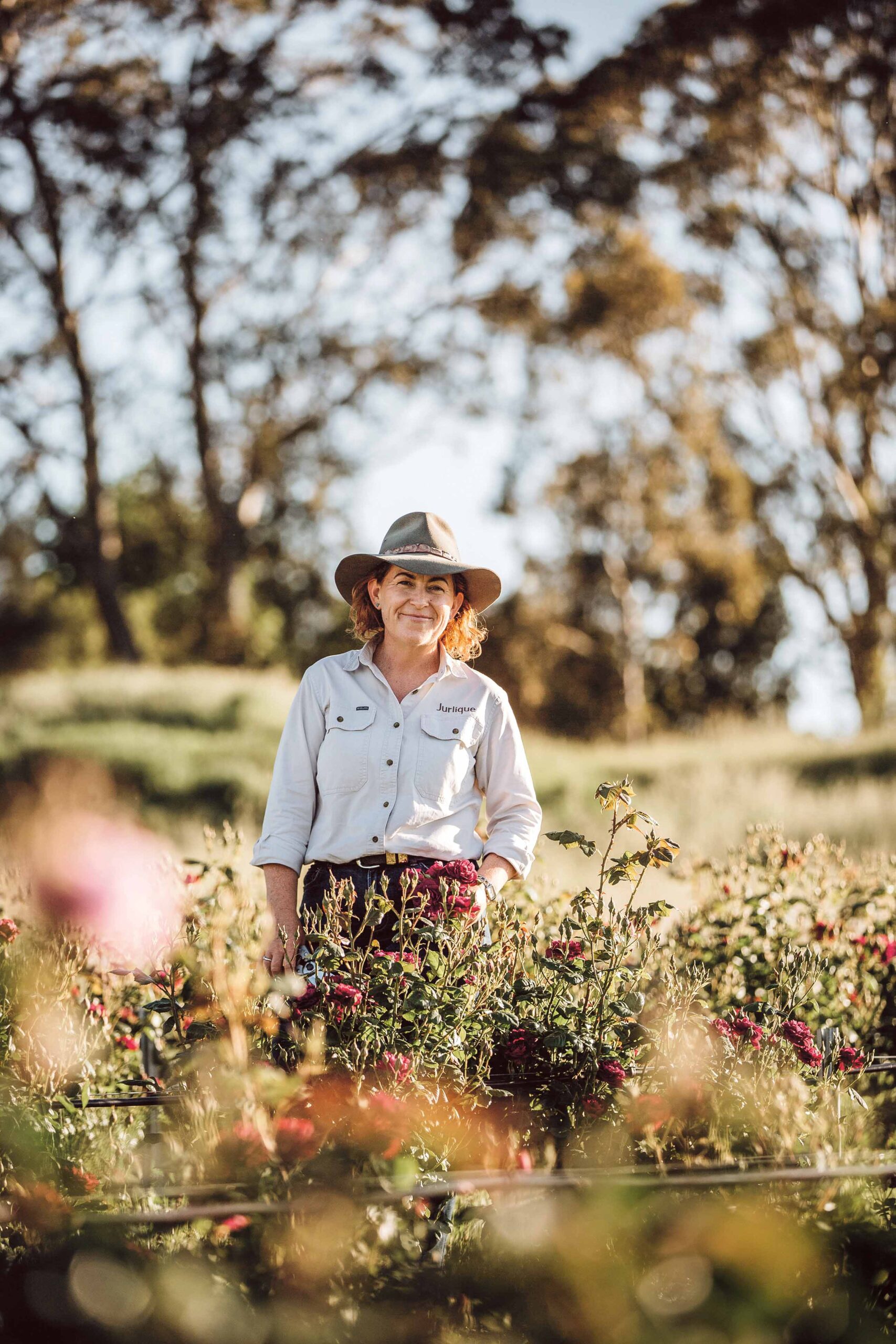
Raised on a dairy farm near Hahndorf, SA, farm manager Cherie Hutchinson has a deep love for the land she works on.
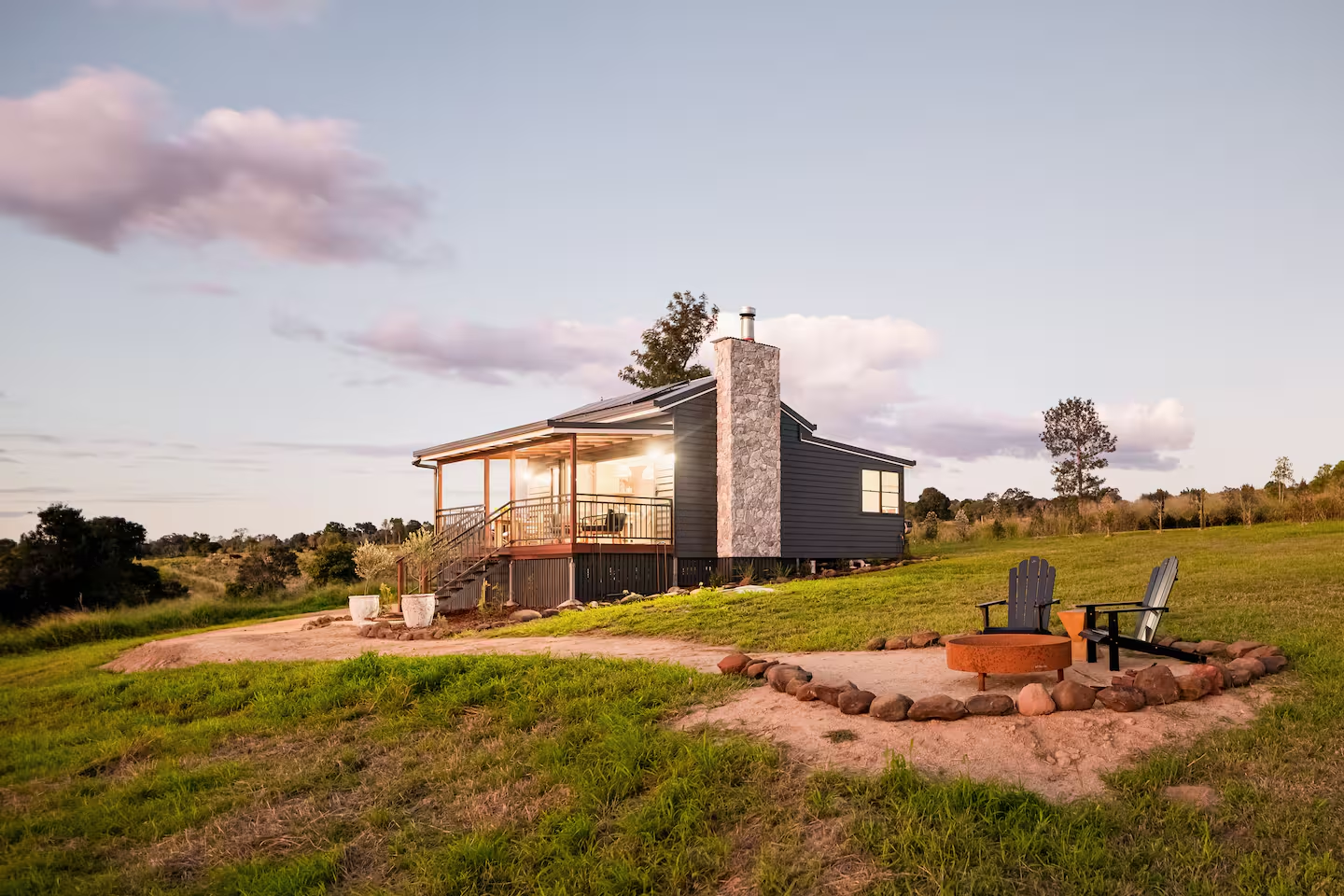
If you like the idea of a private plunge pool, mountain views and a glass of local verdelho, it’s time to start planning your Firebreak Farm escape.